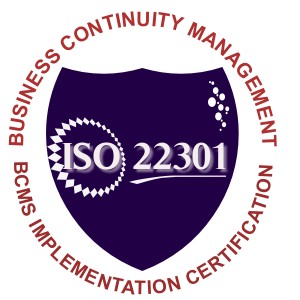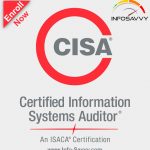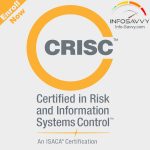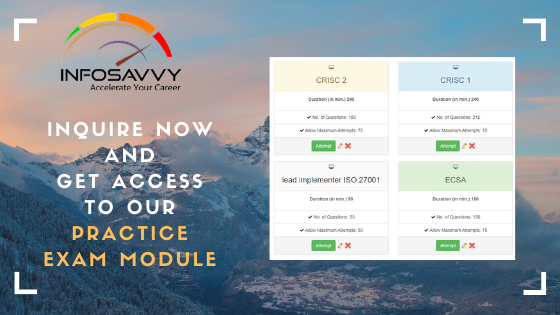ISO 22301 is an international standard for business continuity management. It is applicable to all kinds of organizations irrespective of type, size and nature of the organization. ISO 22301 specifies requirements for a holistic management process that identifies potential threats to an organization and provides a framework for building organizational resilience that safeguards the interests of its key stakeholders, reputation, brand and value-creating activities.
Disasters can occur from natural causes, human errors, intentional or unintentional activity; virtually every company has a genuine exposure to catastrophe. The answer to these threats is to be prepared, to have ready a business continuity strategy and plan through which immediate, effective action can be taken should disaster strike. Whatever the danger to company assets; a current, detailed and flexible plan will help your organization survive.
Like many other management systems, ISO 22301 is based on the Plan-Do-Check-Act approach. You can prepare for the standard by undergoing training to learn more about it. TÜV SÜD offers a foundation certification that provides an overview of the standard’s requirements along with the Lead implementer certification which endorses your knowledge in implementing and managing Business continuity plans in your organization. You will also learn what your organisation needs to do in order to ensure its continued compliance to the standard after initial certification.
Certified Lead Implementer in BCMS:
Training shall include minimum three case studies where candidates are given simulated environment for business continuity to work on the case study and give their responses.
Following topics shall also be covered in the Lead Implementer training
- Exam content of BCMS – foundation level
- Fundamental Principles and Concepts in Business Continuity (BC)
- Business Continuity Best Practices – overview
- Planning a BCMS
- Implementing a BCMS
- Performance Evaluation, Monitoring and Measurement of a BCMS
- Continual Improvement of a BCMS
- Preparation for a BCMS Certification audit
- Typical challenges faced during implementation and maintenance of BCMS
Your organisation may not consider its information to be vulnerable or targeted for attack but in the borderless Internet-connected world, disruptions to business processes can cripple your operations and allow your competitors to gain market share. ISO 22301 offers a systematic and well-structured approach that will provide capability to an organization to continue delivery of products or services at acceptable predefined levels following disruptive incident
Overview
ISO 22301 BCMS Implementation Training & Certification
ISO 22301 is an international standard for business continuity management. It is applicable to all kinds of organizations irrespective of type, size and nature of the organization. ISO 22301 specifies requirements for a holistic management process that identifies potential threats to an organization and provides a framework for building organizational resilience that safeguards the interests of its key stakeholders, reputation, brand and value-creating activities.
Disasters can occur from natural causes, human errors, intentional or unintentional activity; virtually every company has a genuine exposure to catastrophe. The answer to these threats is to be prepared, to have ready a business continuity strategy and plan through which immediate, effective action can be taken should disaster strike. Whatever the danger to company assets; a current, detailed and flexible plan will help your organization survive.
Like many other management systems, ISO 22301 is based on the Plan-Do-Check-Act approach. You can prepare for the standard by undergoing training to learn more about it. TÜV SÜD offers a foundation certification that provides an overview of the standard’s requirements along with the Lead implementer certification which endorses your knowledge in implementing and managing Business continuity plans in your organization. You will also learn what your organisation needs to do in order to ensure its continued compliance to the standard after initial certification.
Course Outline
ISO 22301 BCMS Implementation Training & Certification
Certified Lead Implementer in BCMS:
Training shall include minimum three case studies where candidates are given simulated environment for business continuity to work on the case study and give their responses.
Following topics shall also be covered in the Lead Implementer training
- Exam content of BCMS – foundation level
- Fundamental Principles and Concepts in Business Continuity (BC)
- Business Continuity Best Practices – overview
- Planning a BCMS
- Implementing a BCMS
- Performance Evaluation, Monitoring and Measurement of a BCMS
- Continual Improvement of a BCMS
- Preparation for a BCMS Certification audit
- Typical challenges faced during implementation and maintenance of BCMS
Benefit
ISO 22301 BCMS Implementation Training & Certification
Your organisation may not consider its information to be vulnerable or targeted for attack but in the border less Internet-connected world, disruptions to business processes can cripple your operations and allow your competitors to gain market share. ISO 22301 offers a systematic and well-structured approach that will provide capability to an organization to continue delivery of products or services at acceptable predefined levels following disruptive incident
Who Should Attend
ISO 22301 BCMS Implementation Training & Certification
- Auditors and Lead Auditors who are required to conduct internal and external BCMS audits
- Persons responsible for implementing Business Continuity management system
- The Business Continuity team (which may include any of the consultants , project managers, organizational staff, etc) responsible or wanting to support the organization in implementing and identifying risks and ensuring business continuity in case of any disaster
Exam Information
ISO 22301 BCMS Implementation Training & Certification
Exam format: Lead Implementer
Part A
- Part A will have 40 questions, each of one mark
- 15 knowledge level multiple choice questions from module 1 & 2
- 25 questions from Module 3, 4 and 5 and will have questions based on analyzing & synthesizing
- Total Marks of Part A = 40 marks
Part B
- Case Studies: There will be minimum 5 essay type questions per case study which student needs to respond to.
- Cases = 3; each case= 10 marks,
- Total marks of Part B = 30 marks
Total marks of Lead Implementer exam: 70 marks Passing standard: 70 %; (minimum marks = 49 marks) Note: Attempt in both the Parts of exam is mandatory. Duration of Lead Implementer exam: 120 minutes “Open book exam” – candidate’s handout, notes prepared during training & ISO 22301 standard copy is allowed.
Professional Experience:- 3 years of work experience in Information Technology domain which includes at least 8 months of experience in Business continuity management system
Training course:- Recommended hours of training 24 Hours
Expectation:-
ISO 22301 BCMS Implementation Training & Certification
- It is desirable that candidate may have either read the ISO 22301 standard or have understanding of other ISO standards. eg. ISO 9001
- Candidate should have experience in a implementation of Business continuity plan
Lead Auditor ISO 27001 http://www.info-savvy.com/product/iso-27001-lead-auditor-training-and-certification-isms/
ISO 31000 Risk Management http://www.info-savvy.com/product/iso-31000-risk-management-certified-risk-manager/
ISO 20001 ITSM Implementation http://www.info-savvy.com/product/iso-20001-itsm-implementation/
ISO 27001 ITSM Foundation http://www.info-savvy.com/product/iso-20001-itsm-foundation/
ISO 9000-2015-Implementation http://www.info-savvy.com/product/iso-9000-2015-implementation/














Reviews
There are no reviews yet.